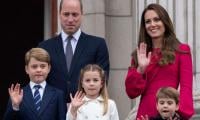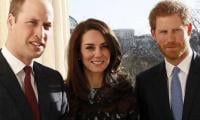ISLAMABAD: While the Westminster concept of democracy that took roots in Great Britain has been the avowed goal of political parties forming governments in Pakistan, using the name of democracy evocatively to express their allegiance to the system of deliberative democracy, the current government of Prime Minister Nawaz Sharif has gone way ahead and started emulating the concept of ‘sofa cabinet’, the informal style of decision making made popular by former British prime ministers Tony Blair and Gordon Brown to make key policy decisions.
The practice of ‘sofa cabinet’ Tony Blair followed – as he would sit on a sofa with his chosen advisers to discuss matters as grave as the Iraq War – had been modelled on the concept of ‘kitchen cabinet’ followed religiously by his predecessors Harold Wilson and Margaret Thatcher who also became known for bypassing their cabinet members and relying instead on a small coterie of advisers “around the kitchen table” or “sitting on the sofa in the den”.
While Tony Blair had to forgo the practice of ‘sofa cabinet’ in view of stinging criticism heaped on him for the informal and circumscribed nature of government procedures and policy making reducing the scope for informed political judgment, this concept has somehow found favour with the rulers in Pakistan where Prime Minister Nawaz Sharif has conducted the business of government, including vital policy decisions on key national and internal issues, without referring them to cabinet meetings for the last 29 weeks now.
The last time the cabinet meeting was held was on September 15, 2015 and since then no urgency of any size or proportion has forced a recall of the cabinet meeting. Though there is no time-frame available to summon the cabinet meeting, the past practice in Pakistan (minus N-League governments) has regularly seen cabinet meetings taking place once every fortnight.
Sources in the federal government confided to this correspondent that during the previous months, there were several issues of critical importance which should have been discussed and decided by the federal cabinet but the government preferred not to summon the cabinet meeting and decided the issues in hand without any consultation.
A federal minister, talking to the correspondent on condition of anonymity, said, “Though we have a parliamentary system of government but practically all the major decisions are being taken outside parliament as well as cabinet.”
Replying to a question, he said none of the cabinet members was aware of the forum taking all the decisions.
He said the Kingdom of Saudi Arabia established the Muslim countries’ alliance and Pakistan was a part of it “but we learnt it from the press that such an alliance has been established and Pakistan is very much part and parcel of this alliance. The government didn’t feel it necessary to take the cabinet or parliament into confidence.”
Similarly, India alleged that Pakistanis were involved in the Pathankot attack. After that India cancelled the scheduled dialogue but the Nawaz government never thought it fit to discuss it in a cabinet meeting.
Similarly, security agencies arrested a high-profile Indian spy involved in managing terrorist activities in Pakistan, in particular Balochistan. “But we read all about it in the press. The CM Balochistan was changed. The federal cabinet never knew the rationale about this decision,” he added.
Similarly, a large number of people, after attending Mumtaz Qadari’s Chehlum, entered Islamabad and made it hostage for three days but the government never felt it necessary to discuss the situation. There were contradictions in the government’s stance in handling of the protesters but there was no discussion at any level to discuss the situation.
Then there were decisions on financial side which are of high importance but the cabinet members were kept aloof. It included privatisation of Pakistan Steel Mills, power distribution companies and Pakistan International Airlines as well as establishment of new airlines. The same has been the case with the National Action Plan and its impact on national security and hurdles in its implementation.
Also, Prime Minister Nawaz Sharif visited several countries but the cabinet was never briefed on these visits.The News contacted Federal Minister for Information Pervaiz Rashid to ask why the cabinet meeting could not be held in the last six-and-a-half months, but he was not available. The first message with a request to give the government’s point of view was sent on March 20, the second on March 25 and the third on April 4, but there was no reply from the minister or his office till the filing of the report.
Judge raised the query after warning to announce the verdict if Maneka’s lawyer remained absent from the hearing and...
The development came amid the United States’ explicit opposition to the bilateral project
Qaiser claimed that both parties rejected entire process which led to the formation of the incumbent government
She examined a proposed site for the construction of a state-of-the-art hospital in Murree and approved
Raoof Hasan warned against any attempt to extend the tenure of Chief Justice of Pakistan Qazi Faez Isa by another...
These payments will help PBA members to clear some of their liabilities







